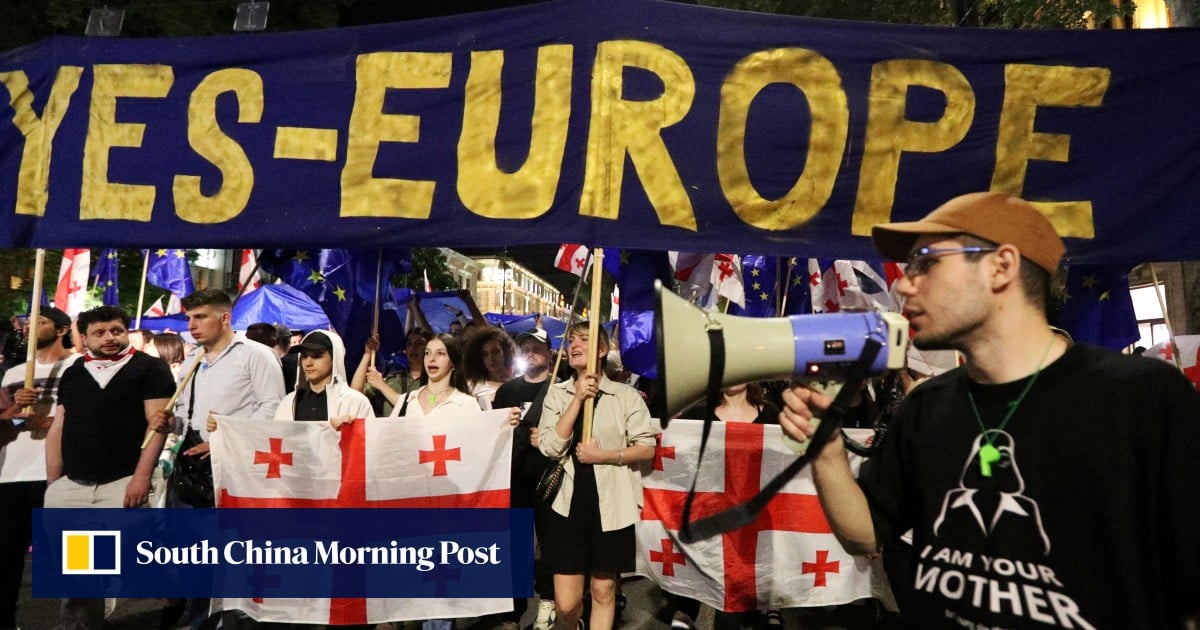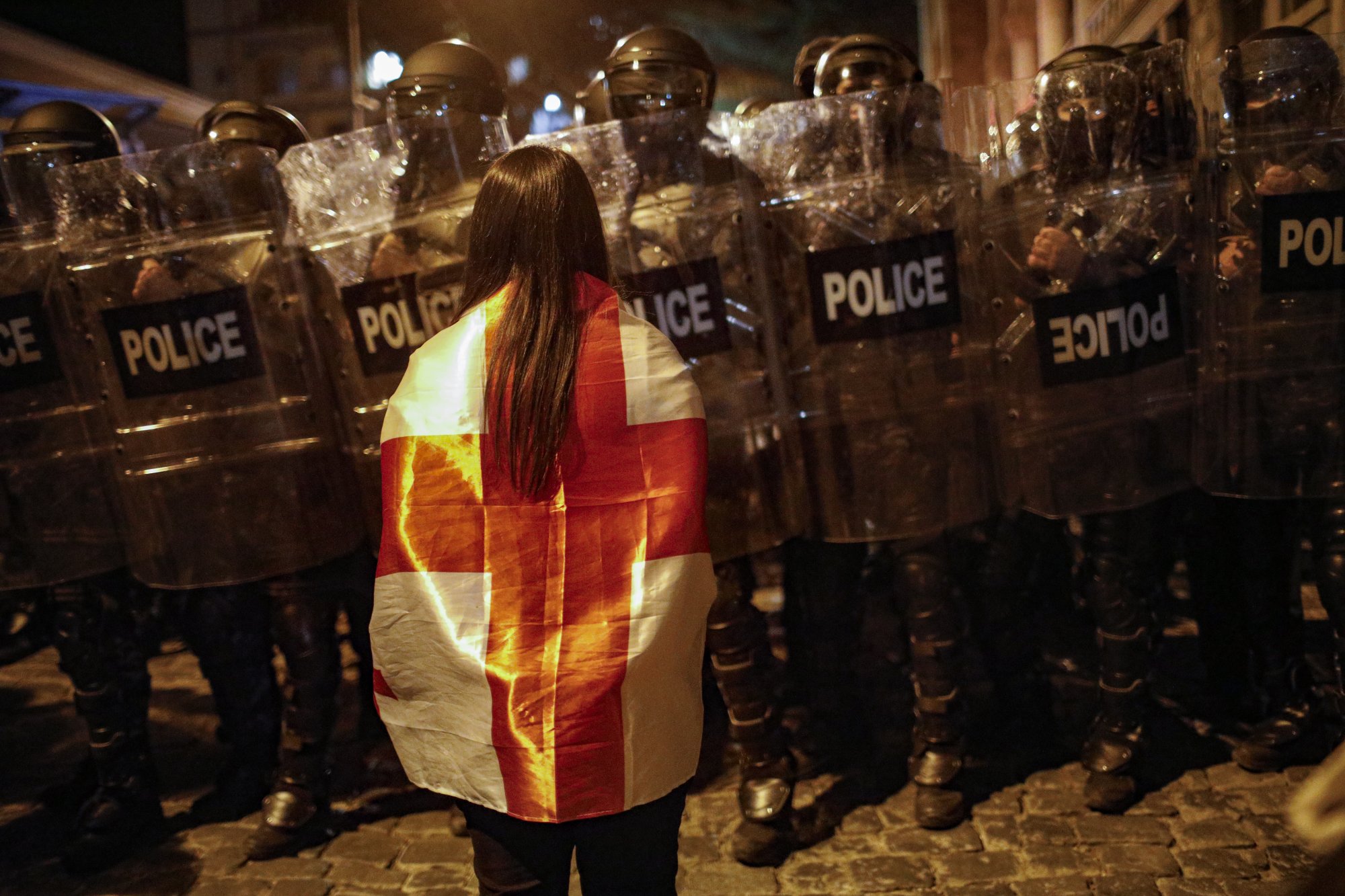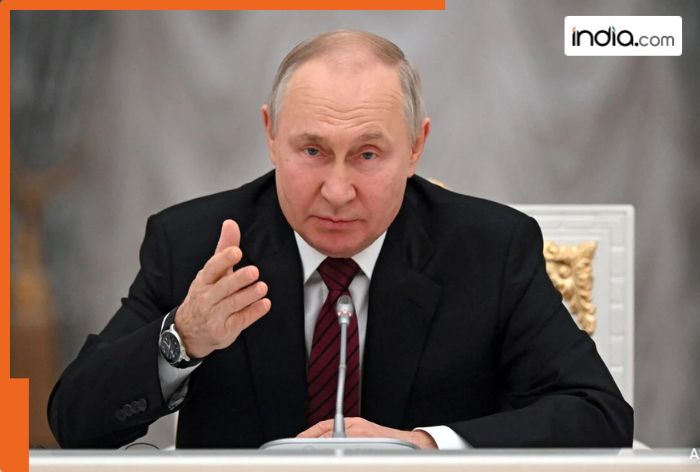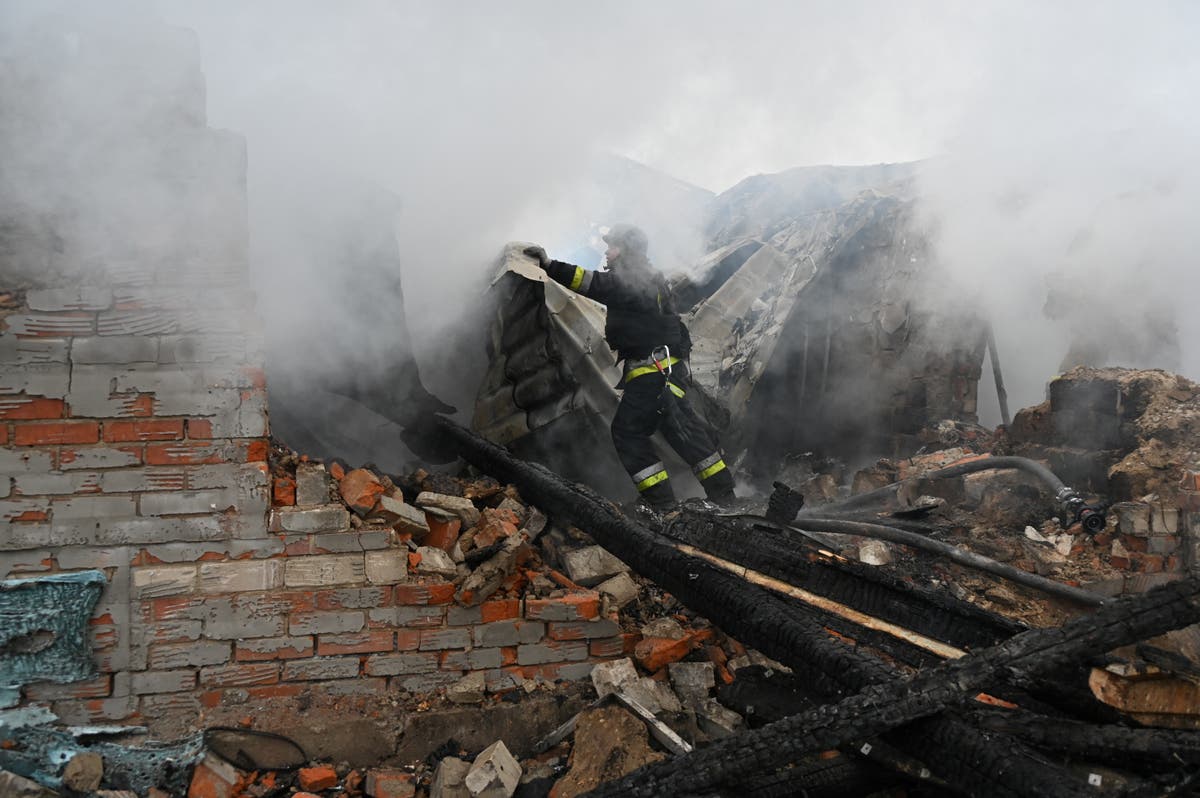20,000 Georgians ‘March for Europe’, protest ‘foreign influence’ bill

Police have again clashed with protesters during the latest rallies.
On Sunday evening – before staging what organisers called a “March for Europe” – at least 20,000 people turned out at Tbilisi’s central Republic Square, according to an Agence France-Presse estimate.
Thousands protest, lawmakers brawl as Georgia debates ‘foreign agents’ bill
Thousands protest, lawmakers brawl as Georgia debates ‘foreign agents’ bill
“I am here to protect Georgia’s European future,” said 19-year-old Lasha Chkheidze. “No to Russia, no to the Russian law, yes to Europe.”
The rally was organised by around 100 Georgian rights groups and opposition parties, which have until now kept a low profile at the youth-dominated daily protests.
“The authorities, which have reintroduced the Russian bill, are going beyond the constitutional framework and changing the country’s orientation, betraying the unwavering will of the people,” the organisers said in a statement.
At one point during the largely peaceful rally, demonstrators attempted to break through a police cordon outside the parliament building to hoist an EU flag there, an Agence France-Presse journalist witnessed.
Police used pepper spray without warning.
The interior ministry said in a statement that “the protest turned violent” and that “demonstrators physically and verbally confronted law enforcement”.

Past midnight, hundreds of riot police were deployed in the area.
To counter days of anti-government protests, Georgia’s ruling party announced its own rally on Monday, when a parliamentary committee is set to hold a second reading of the bill.
If adopted, the law would require any independent NGO and media organisation receiving more than 20 per cent of its funding from abroad to register as an “organisation pursuing the interests of a foreign power”.
Georgian President Salome Zurabishvili – who is at loggerheads with the ruling party – has said she will veto the law.
But Georgian Dream holds a commanding majority in the legislature, allowing it to pass laws and to vote down a presidential veto without needing the support of any opposition MPs.

Georgian Dream insists it is staunchly pro-European and that the proposed law aims only to “boost transparency” of the foreign funding of NGOs.
“This law, as well as this government, are incompatible with Georgia’s historic choice to be an EU member,” the leader of the opposition Akhali party, Nika Gvaramia, told Agence France-Presse at the protest.
EU chief Charles Michel has said the bill “is not consistent” with Georgia’s bid for EU membership. It “will bring Georgia further away from the EU and not closer”, he said.
In December, the EU granted Georgia official candidate status.
But before membership talks can be formally launched, Tbilisi will have to reform its judicial and electoral systems, reduce political polarisation, improve press freedom and curtail the power of oligarchs, said Brussels.
Once seen as leading the democratic transformation of ex-Soviet countries, Georgia has in recent years been criticised for perceived democratic backsliding.
Related
European city named as the best place for food in…
When people think of good food they think of pasta in Italy, sushi in Japan or tacos in Mexico. No matter where travellers go around the world most people�
Support for Ukraine ‘until it wins’ falls sharply in western…
Readiness to support Ukraine “until it wins” has fallen sharply across western Europe at a critical time for the country, a survey suggests, as Donald Trump
Big move by Putin as Russia plans to attack another…
Home NewsBig move by Putin as Russia plans to attack another European country after Ukraine, accuses it of…, US to�
Ukraine-Russia war latest: Biden vows surge in weapons for Kyiv…
Zelensky says Ukraine could temporarily cede territory in exchange for Nato membershipFor free real time breaking news alerts sent straight to your inbox sign u








